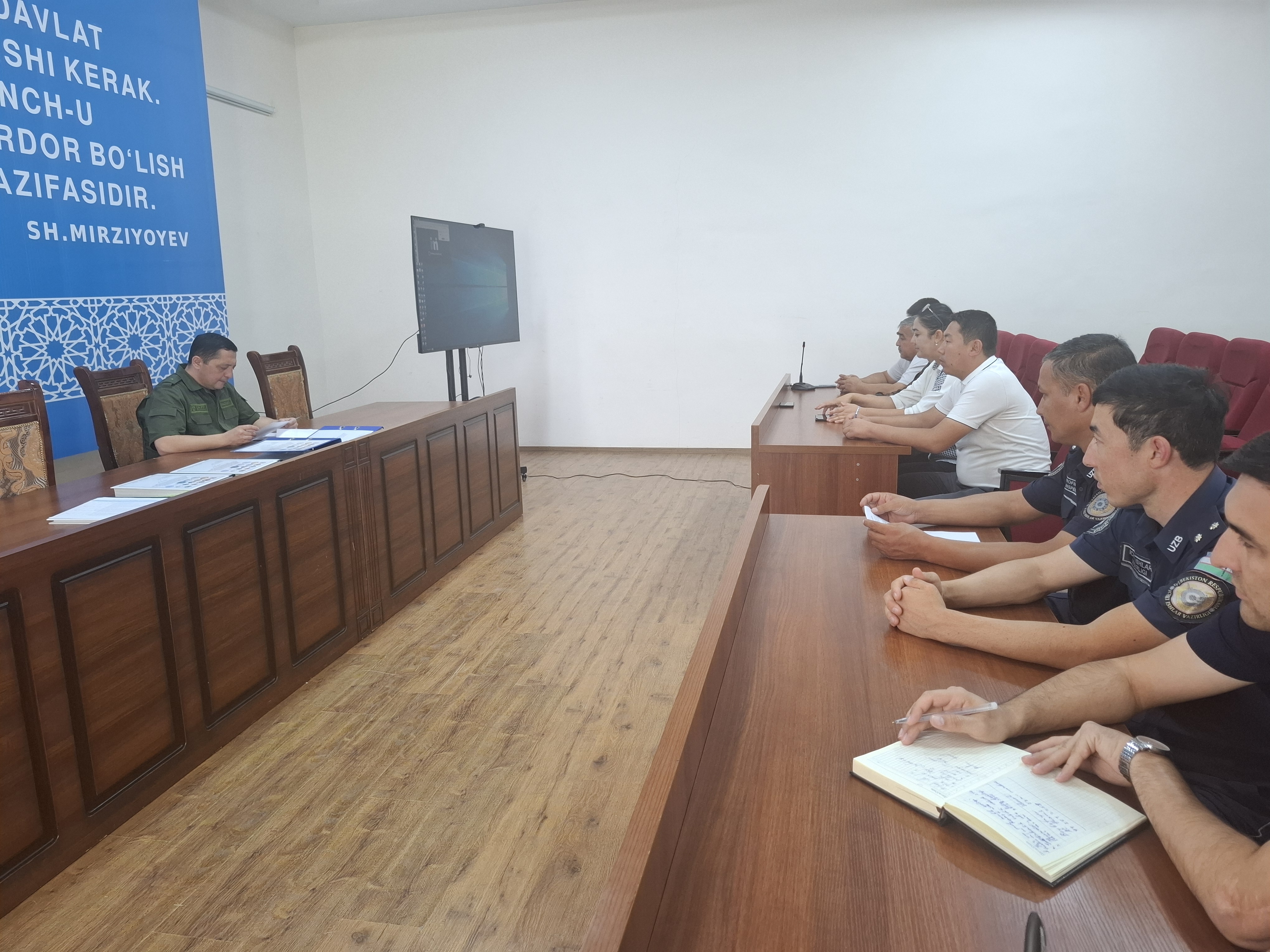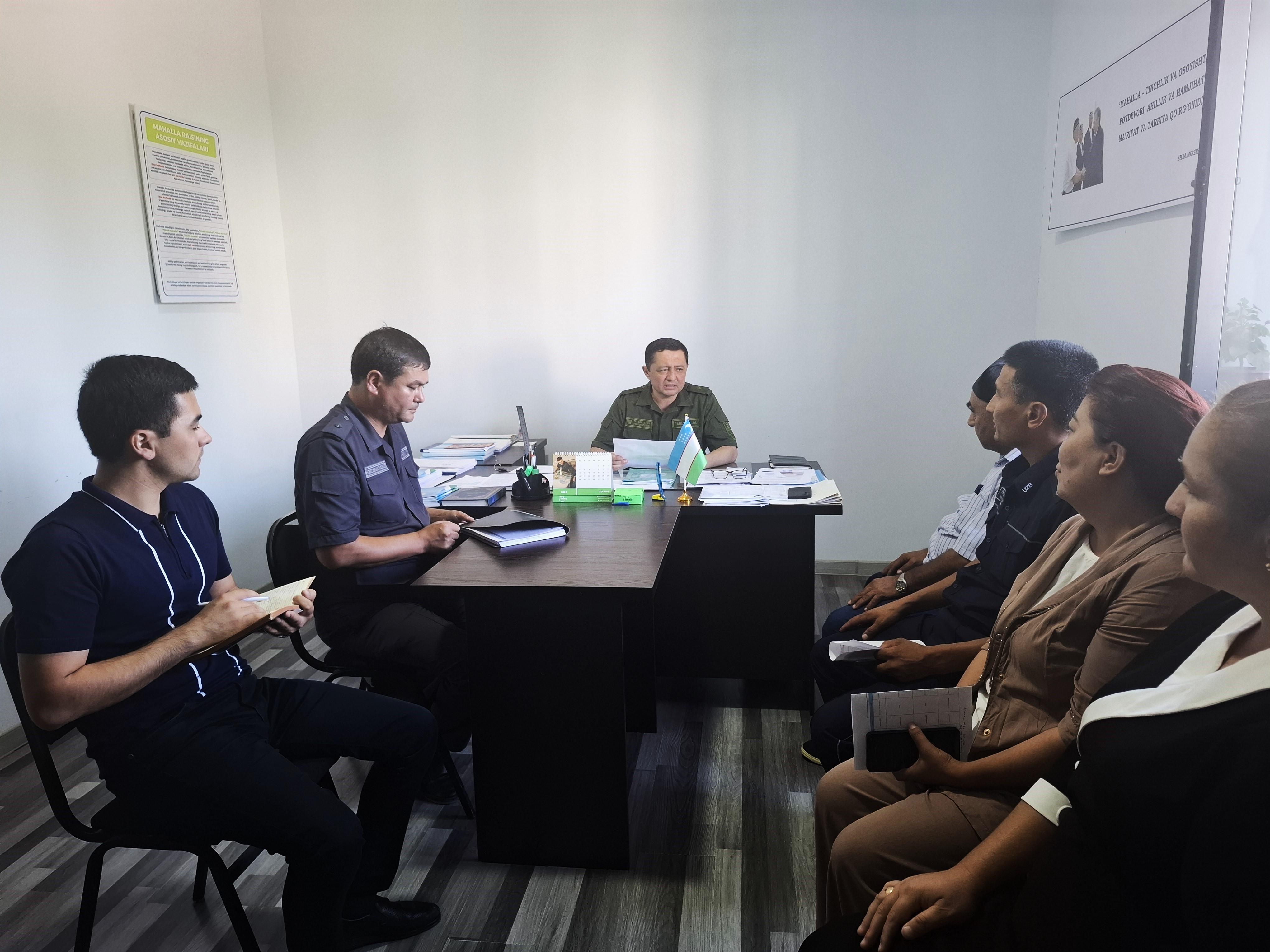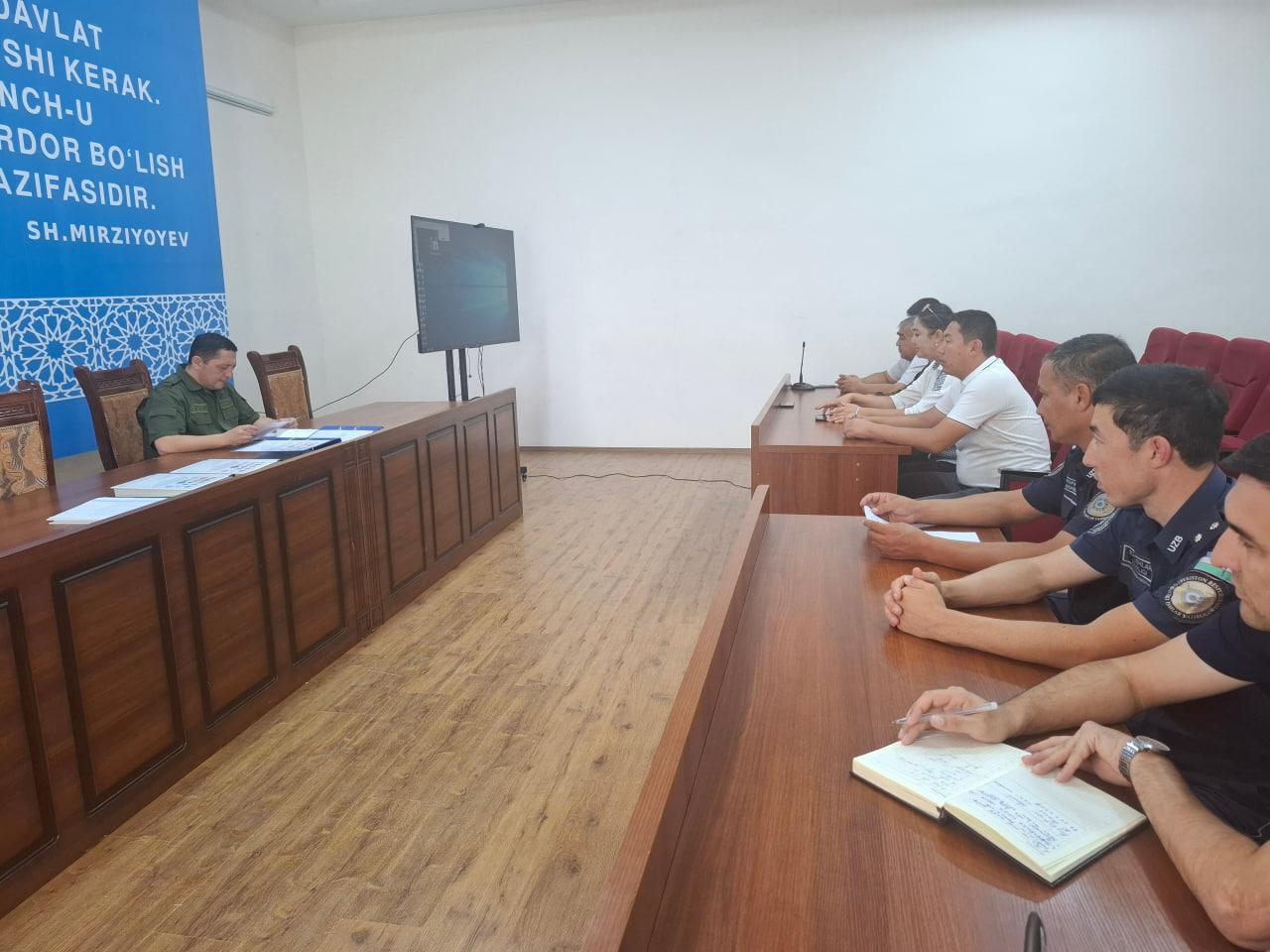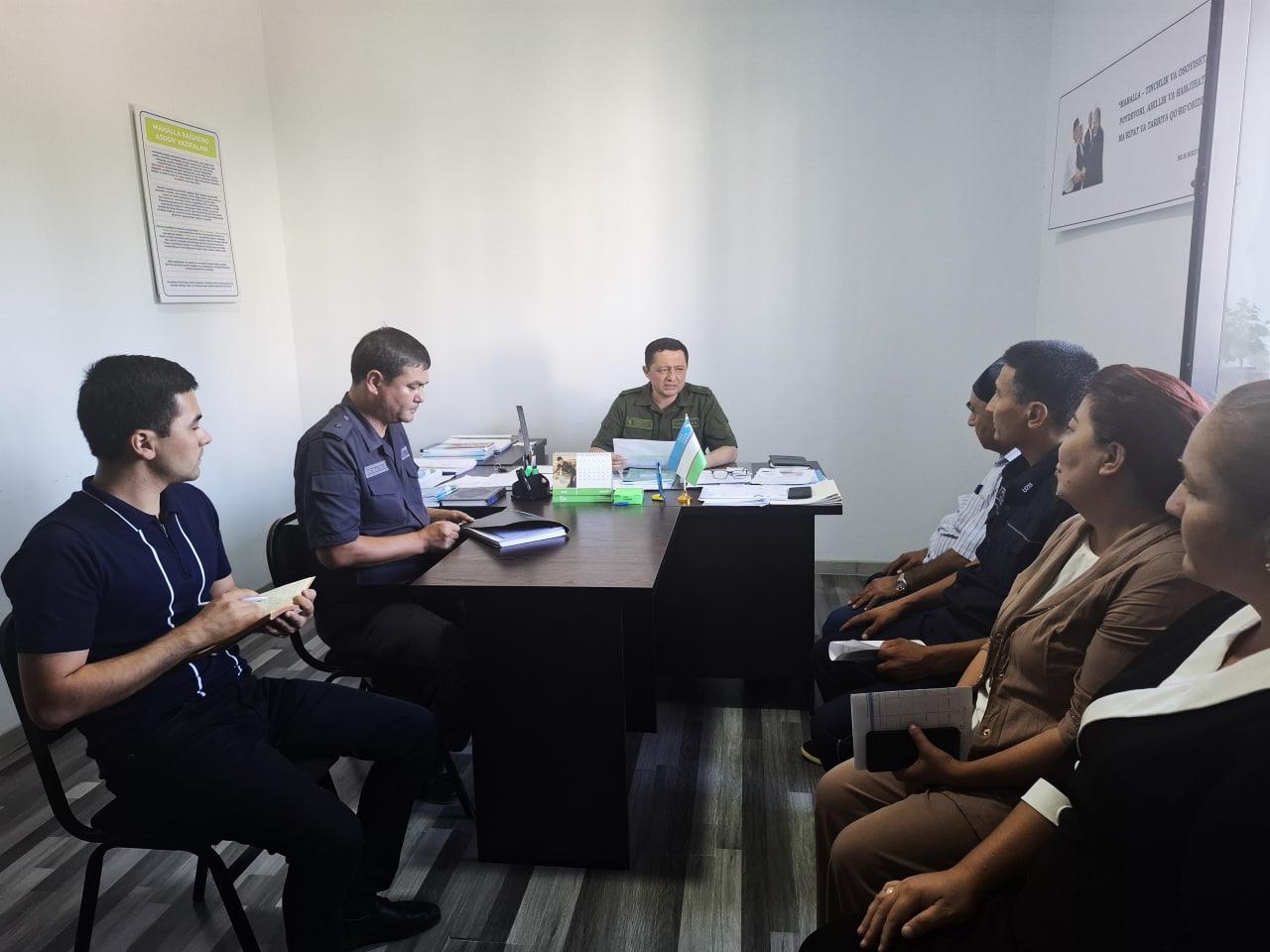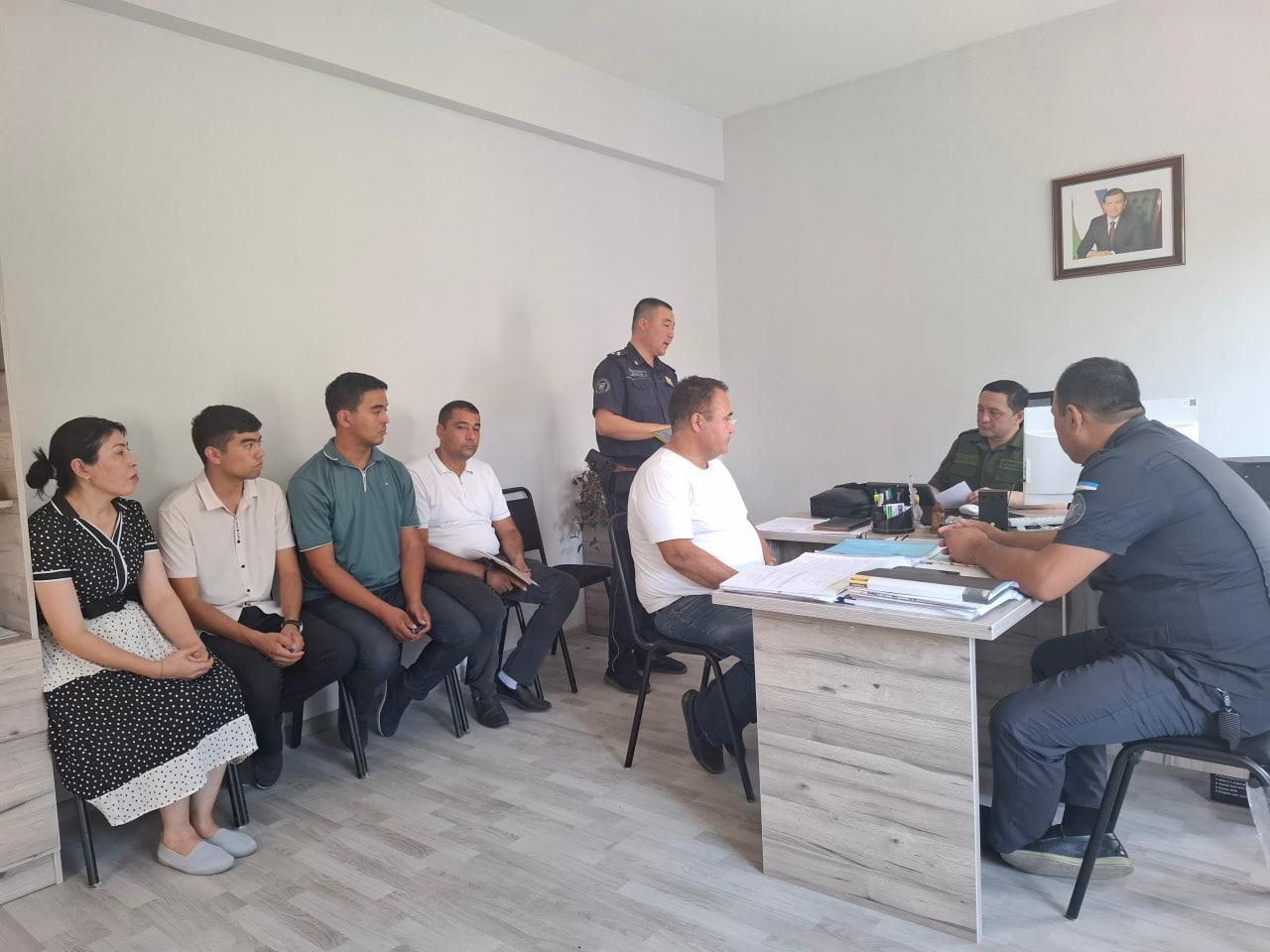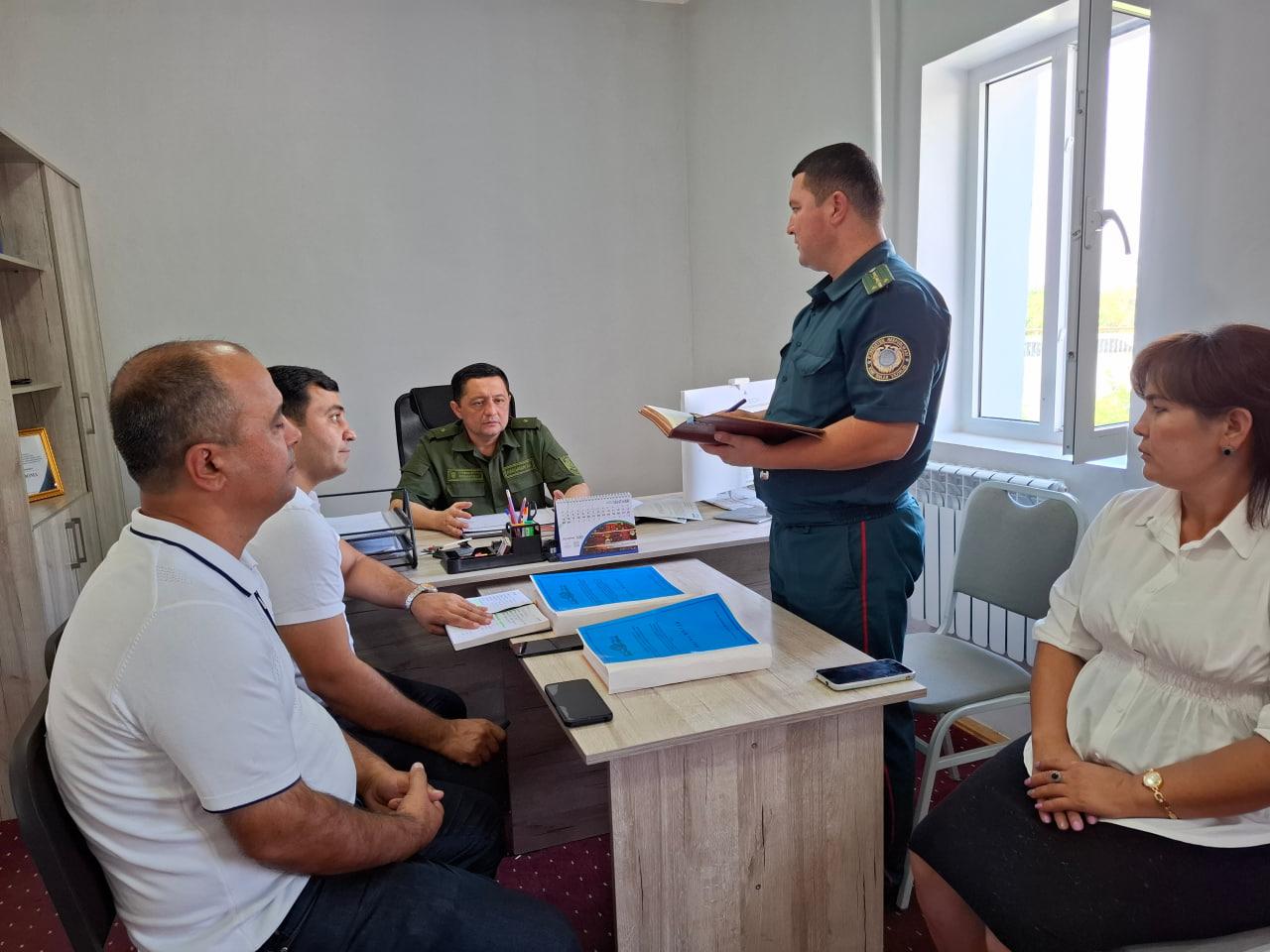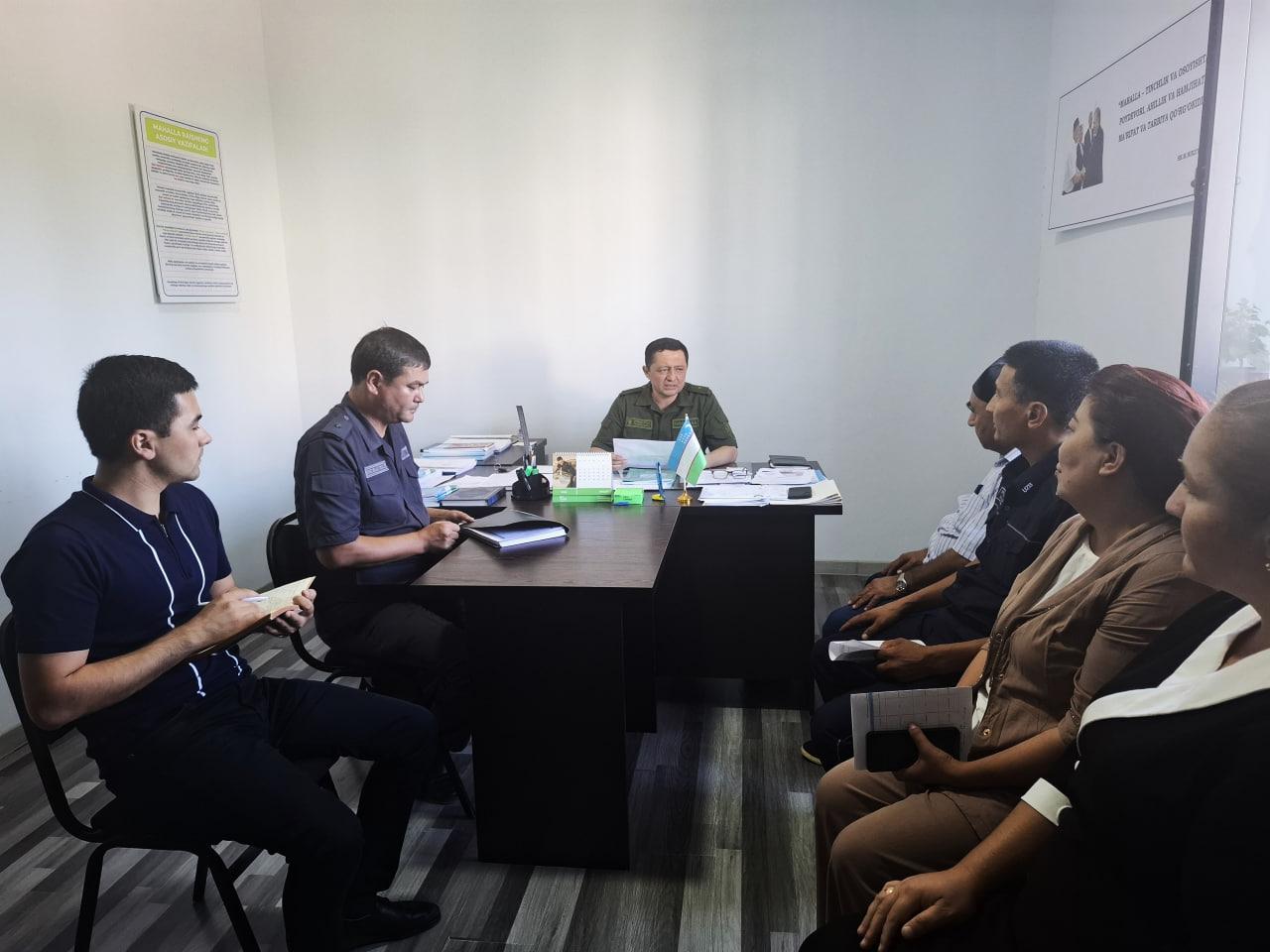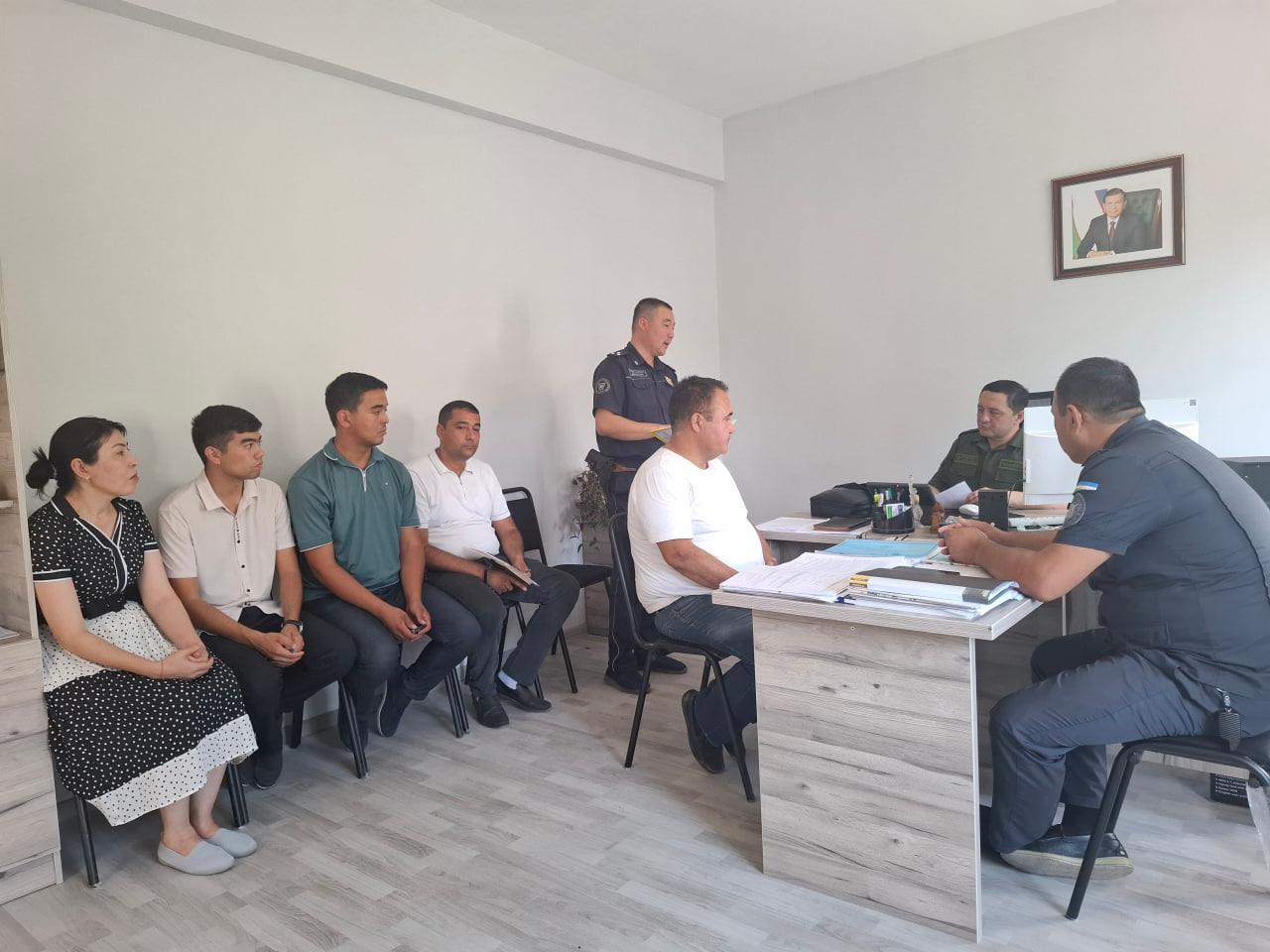Work continues on studying the criminogenic situation in mahallas based on scientific approaches
Within the framework of the implementation of the Resolutions of the President of the Republic of Uzbekistan dated January 3, 2025, No. PP–1 “On measures to create a safe environment and further improve the effectiveness of the system for early prevention of offenses in the mahallas of the republic in 2025,” and dated August 18, 2025, No. PP–253 “On amendments and additions to certain Resolutions of the President of the Republic of Uzbekistan aimed at further increasing the efficiency of the system for early crime prevention in mahallas”, a working group from the Academy has been carrying out comprehensive on-site measures to study the criminogenic situation in mahallas.
In September of this year, the Academy’s working group, using scientific approaches, studied the state of work on identifying and early preventing offenses and crimes in the mahallas of “Ulug‘bek”, “Madaniyat”, “Jizzakhlik”, “Qassoblik”, “Sangzor” (city of Jizzakh); “Sogdiyona”, “Qulpisar”, “Yangidiyor”, “Tokchilik”, “Bobur”, “Yoshlik” (Sharof Rashidov District); “Fayzobod”, “Usmat” (Bakhmal District); “G‘ubdin”, “Sarbozor” (Gallaorol District); “Tarraqiyot”, “Lalmikor” (Zarbdar District); “Turtto‘m”, “Taraqqiyot” (Zamin District); “G‘alaba” (Paxtakor District); and “Yegizbuloq”, “Khonbandi”, “Ukhum” (Farish District) of the Jizzakh Region.
At the same time, the following were analyzed: the causes and factors influencing the criminogenic situation in mahallas; the conditions and socio-economic problems contributing to the commission of crimes; and the preventive measures being implemented.
Based on the results of the work, targeted recommendations and proposals were developed to improve the effectiveness of preventive efforts and enhance the criminogenic situation in each mahalla, which were subsequently included in the roadmaps.

